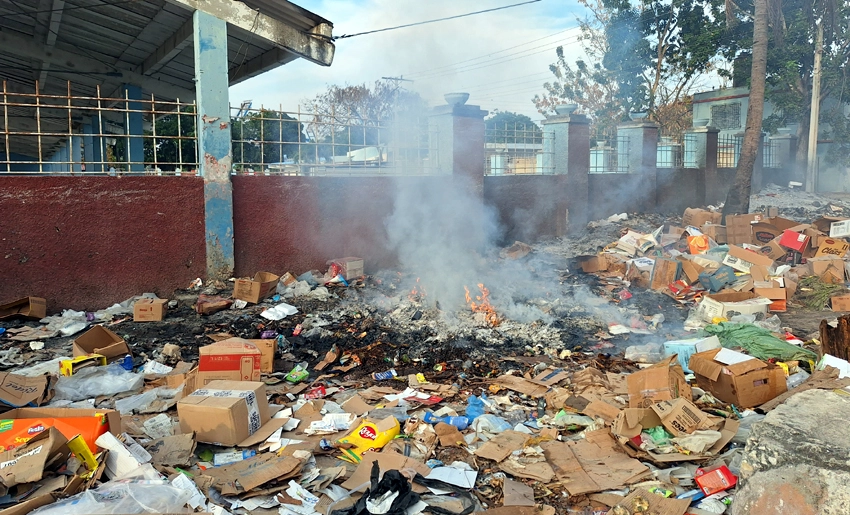In the concrete labyrinth we call home, a persistent and dangerous practice casts a shadow on the health of communities around the planet: the burning of solid waste in urban areas. What begins as a quick “solution” to get rid of garbage becomes an environmental and health time bomb, leaving a trail of devastating consequences.
The black smoke rising from burning garbage piles is a toxic mix of fine particles, noxious gases and carcinogenic chemicals. This infernal cocktail infiltrates our lungs, aggravating respiratory diseases such as asthma and bronchitis, especially in children and older adults.
But the damage doesn’t stop there. Long-term exposure to these pollutants increases the risk of heart disease, cancer, and other serious health problems.
The release of greenhouse gases, such as carbon dioxide and methane, accelerates global warming and exacerbates extreme weather events. Ash and waste contaminate soil and water, affecting the quality of urban ecosystems.
But why does this practice persist despite its obvious risks? Not only in Latin American countries but anywhere in the world the answer lies in the lack of adequate alternatives and poor waste management.
In many urban areas, garbage collection is irregular, landfills are saturated, and there are no effective recycling programs. In this situation, burning garbage becomes an easy, although lethal, “solution.”
To break this vicious cycle, we need to strengthen garbage collection systems. Guarantee regular and efficient collection in all urban areas, including slums and hard-to-reach areas.
Likewise, promote the reduction, reuse and recycling of waste, implementing environmental education programs and awareness campaigns to encourage the reduction of consumption, the reuse of products and the recycling of materials. Invest in waste management infrastructure, build sorting and composting plants, sanitary landfills and other facilities necessary for the proper treatment of waste.
Furthermore, enforce the law and punish those who burn garbage, establish strict legislation that prohibits the burning of waste and punish violators with fines and other measures.
The fight against burning garbage is a battle for the health of communities, for air quality and for the future of the planet. We cannot continue allowing toxic smoke to suffocate us. The air we breathe and the future we want are at stake.
By: Indira Vania López Samé / Translated by Radio Angulo
- Inder’s 64th anniversary celebrated in Holguin - 22 de February de 2025
- Sport as a driver of values - 22 de February de 2025
- Sultans and Sharks of Trinidad in the semifinals of Baseball Champion Clubs - 22 de February de 2025

